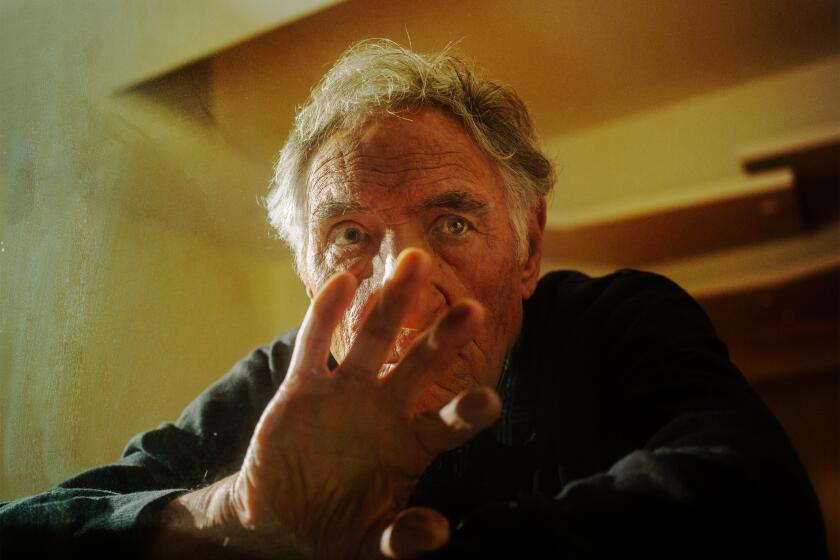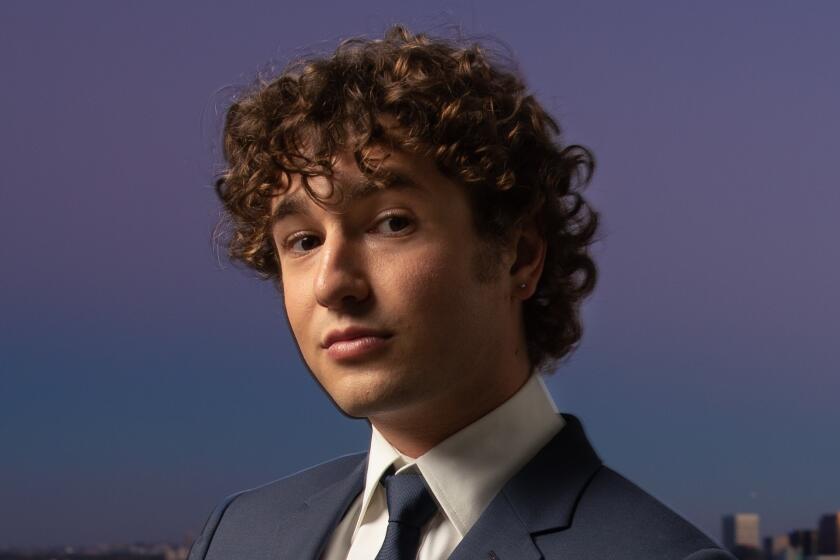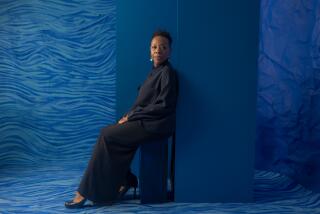Michelle Williams’ ‘Fabelmans’-esque origin story? It starts with PTA and Björk
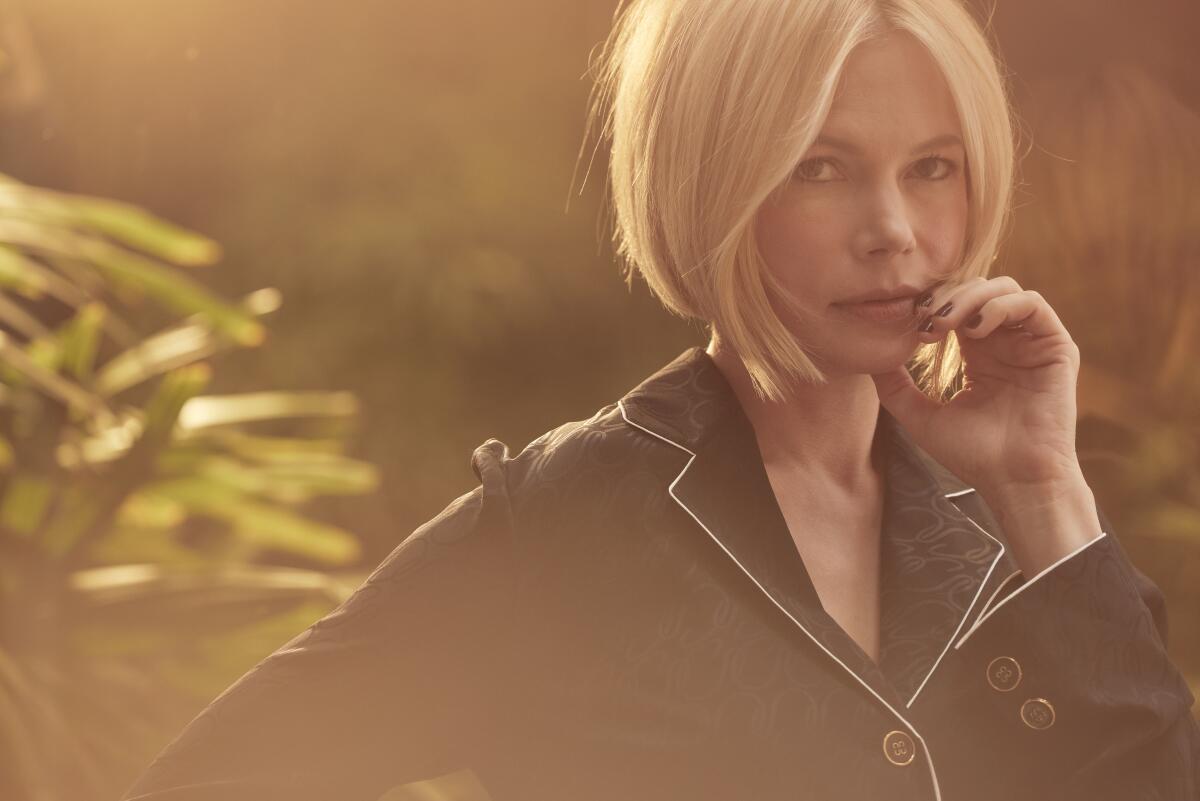
- Share via
Michelle Williams has been talking about artistic journeys — her own and the one at the heart of “The Fabelmans,” the film that just earned her a fifth Oscar nomination — and she pulls out her phone to show me a photo of her 17-year-old daughter, Matilda, joyfully holding her little baby brother, the 3-month-old currently sleeping in Williams’ room here at the Hotel Bel-Air.
Matilda is wearing a Bob Dylan T-shirt, which Williams bought and constantly wore half a lifetime ago when she was a teenager living in Wilmington, N.C., and shooting “Dawson’s Creek.” Williams has long wanted to take Matilda to Wilmington, but that’s a road trip that hasn’t happened yet. “I always thought, maybe I’ll get a job, and it would take me back,” Williams says. “Maybe someday.”
Williams was 17 when she went to Wilmington in 1998 to begin her six-year run on “Dawson’s Creek.” It wasn’t long after she had moved from San Diego to Los Angeles, living on her own as an emancipated minor, sleeping on the floor on a foam mattress, subsisting mostly on takeout pizza.
“I was totally undeveloped in so many ways,” Williams says. “I was living some aspects of an adult life, sure. But I didn’t go to college. I wasn’t influenced by my high school peers. I was a small-town girl, having grown up in Montana and then moved to San Diego for a little bit and now, here I was, really trying to grab onto things.”
In Steven Spielberg’s “The Fabelmans,” a lightly fictionalized account of the filmmaker’s family life and burgeoning passion for filmmaking, Williams plays Mitzi, a version of his mother, Leah, a talented pianist attempting to balance her artistic impulses with being a wife and mother. Williams could relate with the life passages of both the movie’s son and mom, knowing firsthand the single-minded pursuit of a youthful dream and the choices you make as an adult to harmonize your children’s needs with your own.
At 87, the actor was the first person the casting director suggested. Steven Spielberg agreed. “For me, it was a real honor to work with him,” the director says.
With acting preempting the chance for a formal education, Williams says her “college campus” rotated between a Wilmington record store called CD Alley, a DVD shop, the name of which is lost to the sands of time, and the local Barnes & Noble.
If someone were to write a “Fabelmans”-esque origin story of her artistic awakening, it would start, Williams says, with her watching the films of Paul Thomas Anderson, particularly “Magnolia,” a movie about loneliness and loss, familial dysfunction and apocalyptic visions.
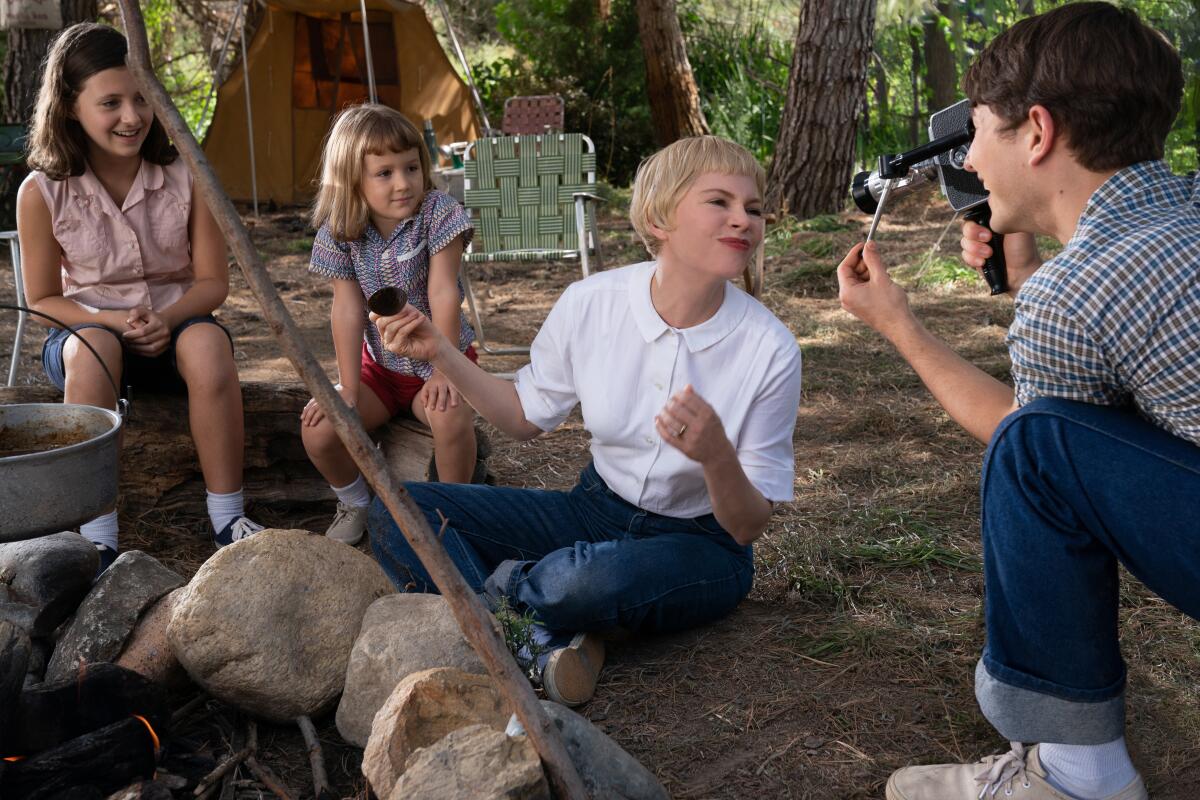
“That just scorched me from the inside out,” Williams says of the 1999 film. “But all his movies scorch me with their observations and performances and humanity. As a young woman, I was really struck by his flawed and difficult characters. I thought, ‘If I can love them, can I allow myself the same love for my own flaws and difficulties?’ I found those characters so beautiful. They challenged my sense of myself. They gave me a window into the possibilities of cinema and who I could be as a person.”
Right around this time, Fred Champion, who owned Wilmington’s CD Alley and hosted hundreds of concerts, movie screenings and theater performances from his downtown loft, gave Williams a Björk CD. She pressed play and started crying, simply because she didn’t know how to make sense of what she was hearing. Quite simply, Björk broke the way Williams understood the nature of sound.
“When someone hands you Björk, it becomes this very important moment,” Williams, 42, says. “You listen to it, you adhere to it and you stick it to yourself where there are these gaps and you need something to fill them in until you can flesh them out yourself.”
As she matured as a woman and an actor, Williams found herself drawn to characters that some might call difficult, headstrong or unlikable. Some of these women have been seen in her four collaborations with filmmaker Kelly Reichardt, including the upcoming A24 release “Showing Up,” in which Williams plays Lizzy, a sculptor navigating a series of annoyances before the opening of her new show. Lizzy’s behavior could be read as irritable and harsh — or, if you’re more charitable and observant, altogether human.
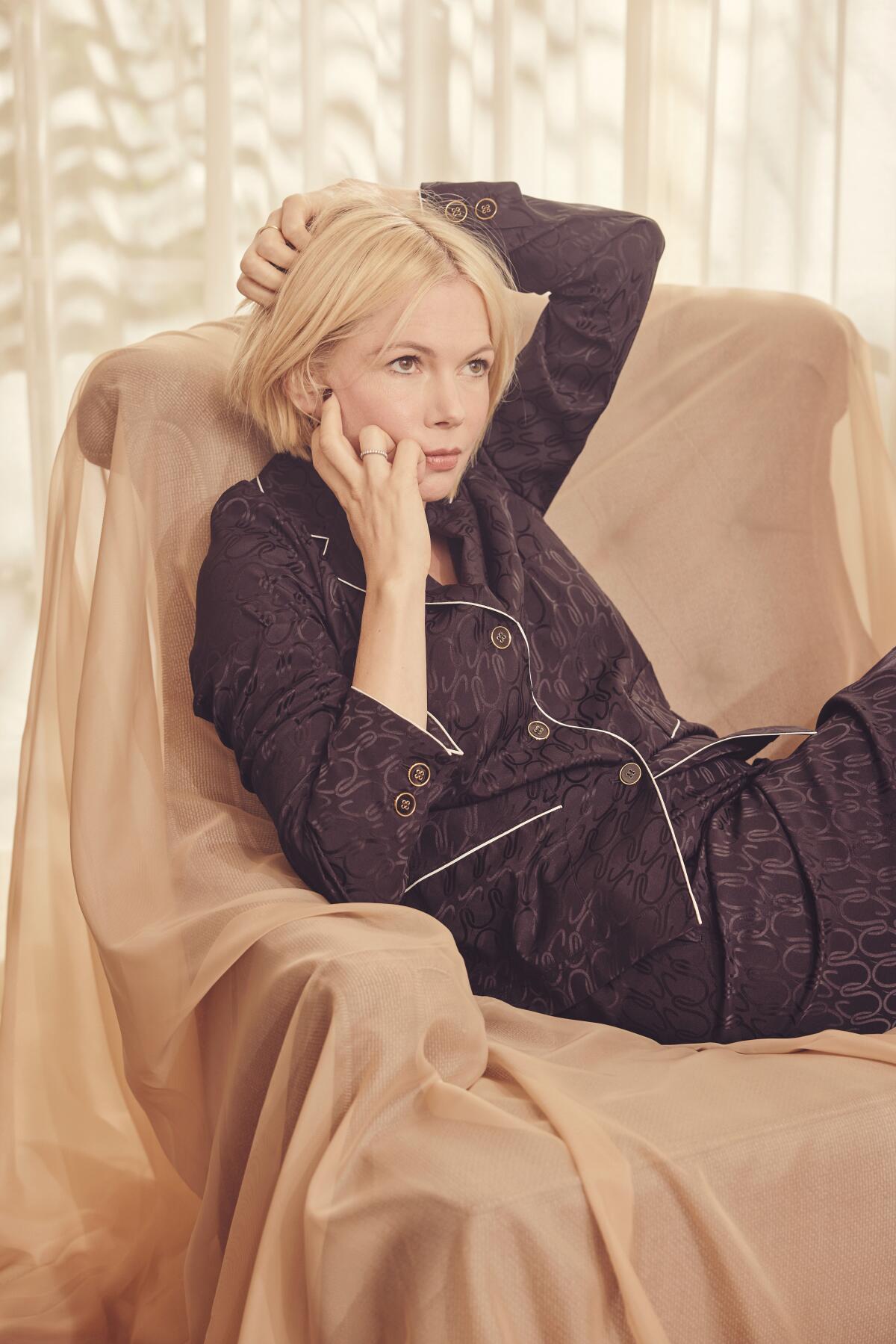
“Michelle likes a complicated knot,” Reichardt tells me over the phone. “She doesn’t want to play the golden hero.”
“Well, no!” Williams says when apprised of Reichardt’s assessment. “The ‘difficult’ ones? Those are my girls! And the more difficult they are, the more connected I am to them. I feel like I’m fighting for them. I’m on their side. And I don’t want to abandon them.”
Williams felt that way about Mitzi in “The Fabelmans,” so much so that she became a “blubbering mess” on the day filming wrapped and she had to say goodbye to the crew along with the experience of playing a woman possessing a personality so much bigger and bolder than her own quiet, introverted self. Williams experienced similar feelings about leaving behind Gwen Verdon on the 2019 FX limited series, “Fosse/Verdon,” though, she notes, there wasn’t as much a public scene.
“Oh, it was awful,” Williams says. “It was so embarrassing. I couldn’t believe what was coming out of me. I just loved my movie family. And I loved Mitzi. I felt like she was a piece of music and her range — her musicality, her emotions — spanned the entire keyboard.”
Back in the “Dawson’s Creek” days, Williams loved to take the 10-hour drive from Wilmington to New York for a day to see plays and movies and then turn right around so she could make her Monday morning call time. She’d load up her car’s six-CD changer with Neil Young, the Flaming Lips (unbidden, she starts singing “Yoshimi Battles the Pink Robots”) and, her favorite thing, mix CDs given to her by friends, unmarked repositories of music that contain mystery, a quality, Williams laments, in short supply in this information age.
Williams still has all these CDs in binders. And if you want to know how much she loves the format and the tactile feel of physical media, ask her what kind of car she owns.
The young actor kept his cool while playing Steven Spielberg under the watchful eye of ... Steven Spielberg in ‘The Fabelmans.’
“I drive a minivan, and the reason I drive a minivan is because it has a CD player,” Williams says. “It also has a little place for your change too, so you can get nickels, dimes and quarters.” She pauses, looking at me, assessing whether I’m passing judgment, and then laughs. “What can I say, I like to be organized!”
Still ... she’s not a complete Luddite. Being the mother of 3-month-old and 2-year-old boys with husband Thomas Kail leaves Williams little time to indulge in her passion for reading. So now she “chokes down” a poem a day on her phone, emailed to her from poets.org. “It’s a pretty nice way to wake up,” Williams says. “My friends and I send them back and forth and have a little dialogue and I like to click on the author and do a little deep dive.”
Williams hasn’t acted since finishing “The Fabelmans” a year and a half ago — obviously, she’s been occupied. And she says she’s not hungry to return. “I’m very full,” she says. And also content.
“I think you get to a certain point where you’ve been pushing for so many decades for self-improvement and self-fulfillment and the satisfaction of total exhaustion of every thought and energetic molecule and iota of talent,” Williams says. “And it really is only recently that I’ve felt like I have more room to play in. I think this is really just a long-winded way of saying ...” she pauses and lets out a sigh, “now I have more joy and less strife.”
More to Read
From the Oscars to the Emmys.
Get the Envelope newsletter for exclusive awards season coverage, behind-the-scenes stories from the Envelope podcast and columnist Glenn Whipp’s must-read analysis.
You may occasionally receive promotional content from the Los Angeles Times.
